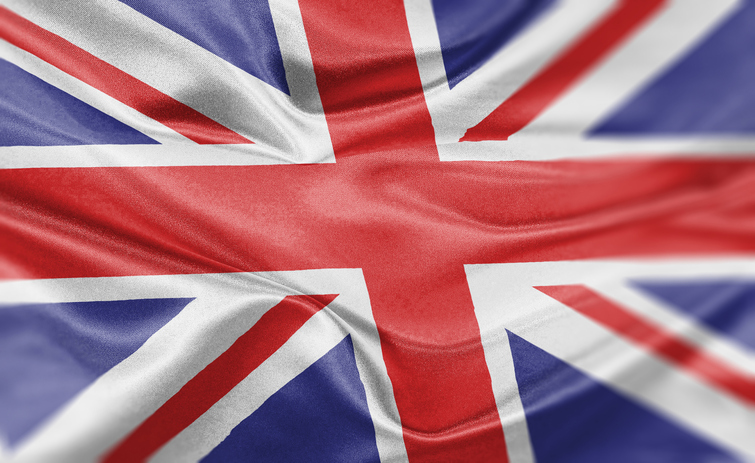Analyses / Europe, European Union, NATO
7 March 2025
London’s Strategy in Europe Impacted by the Acceleration of Developments Around Ukraine

“We are at a crossroads in history.” The gravity of Keir Starmer’s tone and words on Sunday, March 2, 2025, as he addressed the press after the London summit, reflects the intensity of the diplomatic sequence that the British Prime Minister has just engaged in. Following the political change in the United States and a significant shift in international policy, a strong diplomatic ferment has opened in Europe following the cessation of American aid to Ukraine.
The pace of events has radically increased under the impetus of the new American administration. By reopening channels of discussion with Russia and putting Volodymyr Zelensky under pressure, it has triggered a movement of European chancelleries, eager to maintain their support for Ukraine and to forge a new security architecture. In London, support for Ukraine is bipartisan and does not suffer from the political changeover in July 2024. However, the Labour Party, led by Keir Starmer, is actively working, as security in Europe is one of their favoured levers to “reset” the United Kingdom’s relationship with the continent.
The British Boot in Europe’s Door
Both Tories and Labour often clash in the noisy jousts of the House of Commons. However, there is one area where both parties converge: the recognition of an unstable and dangerous world, in which Vladimir Putin’s Russia poses the most prominent threat[1]. In 2023, the Conservatives had tilted the discourse of Global Britain[2], designating Europe as a strategic priority. In 2024, while campaigning, Labour also made Europe their absolute priority.
The United Kingdom has always regarded stability in Europe as inseparable from its own security. Progressive realism[3] thus makes security a priority in the reset of Euro-British ties. Domestically, it allows the Labour government to engage with and about Europe, and even the European Union, deflecting potential criticism that might see in the rapprochement with the continent a supposed desire to “deny” the popular will expressed in the Brexit referendum. On the international front, discussing security with Europeans is also more feasible as the Brexit negotiations had led to significant tensions, particularly with Paris. For many months, evoking values of freedom, adherence to the rule of law, international law, and common interests on both sides of the English Channel, has allowed London to pave the way for establishing new relations with European capitals.
On July 18, 2024, at Blenheim Palace, the summit of the European Political Community allowed London to demonstrate its commitment to “common interests with Europeans.” This potentially new institution adds to a multiplication of bilateral diplomatic initiatives by British diplomacy. On October 23, 2024, London and Berlin formalized an unprecedented defense agreement, the Trinity House Agreement, comparable to the Lancaster House Agreement signed in 2010 with Paris. On January 17, 2025, Volodymyr Zelensky and Keir Starmer signed a “historic 100-year partnership” that establishes London’s military, political, and technological investment alongside Kyiv, reinforcing the United Kingdom’s presence in continental security affairs.
London is on the front line facing a swiftly moving diplomatic sequence, triggered by Donald Trump’s return to power.
In Riyadh, on February 18, 2025, Russia and the United States resumed talks after the extreme degradation of their relations, following the invasion of Ukraine. Donald Trump’s manifest desire to quickly reach an agreement with Vladimir Putin and to obtain economic concessions from Volodymyr Zelensky fuels quiet concerns in Europe. Following hostile remarks by Vice President J.D. Vance at the Munich Security Conference and the unprecedented and startling confrontation between American and Ukrainian leaders on February 28 at the White House, the fear of a clear break in US support for Ukraine and its contribution to European security is more acute and causes a rush in European chancelleries. London is actively engaged in this sequence to position itself at the center of the game and to try to retain American support.
Following Emmanuel Macron, Keir Starmer visited the White House on February 27, both to advocate for an agreement in Ukraine based on durable security guarantees and to demonstrate his country’s increased commitment to continental security. The increase in the British defense budget was thus a sign of good will addressed to Donald Trump and a stance towards its European partners. Although Donald Trump did not make any particular commitment to his counterpart, the meeting sparked an intense two-day diplomatic ballet, centered on the United Kingdom. On March 1, the day after his perilous visit to Washington, Volodymyr Zelensky was warmly received at 10 Downing Street, before a royal audience with King Charles III the following day. The British display of friendship is intended to assure Kyiv of European support, in which London would imprint a prominent leadership, while also providing subtle diplomatic support to Volodymyr Zelensky via a rare invitation to meet the monarch directly after Donald Trump had been invited for a state visit to the latter. Finally, London was again at the center of negotiations around “rearmament and peace in Europe” on Sunday, March 2, as major European leaders gathered there, accompanied by the Prime Ministers of Canada and Norway and the Turkish Foreign Minister.
The outcome of this conference illustrates the delicate balance sought by the United Kingdom. The government works to mobilize Europeans, first to convince Donald Trump to work on a solution to the Ukrainian conflict with its traditional allies rather than with Russia, but also to secure an ascending posture by anticipating a hypothetical place for Europeans at the negotiation table. Four points are essential as a basis for securing peace in Europe according to Keir Starmer: continue supplying military aid to Ukraine and increase economic pressure on Russia; include Ukraine’s sovereignty and security in an agreement with Russia; in case of peace, continue to enhance Ukraine’s defense capabilities; and develop a “coalition of willing countries” to defend an agreement in Ukraine. But the balance is precarious. By refuting on Monday, March 3, the French announcement of a Franco-British plan for a one-month truce on the Ukrainian front, London asserts the need to gain enduring US support before anything else. Despite the significant demonstration of unity, the epilogue of this diplomatic sequence, shaped like a conundrum, reveals the existing dissonances in Europe, with the United Kingdom not yet ready to contemplate a disengagement of the United States.
Inexorable Drift from the Shores of the Atlantic?
The British goodwill to maintain the “special relationship” contrasts with the ambiguity of the American attitude towards the kingdom. Given the furious tumult into which some US partners have been plunged, Donald Trump’s superficial amiability towards Keir Starmer might reassure, despite the very undiplomatic accusations reiterated between the Munich conference and the Starmer-Trump meeting at the White House—concerning freedom of speech, or his remarks about European efforts in Ukraine, coldly received in the United Kingdom, up to Nigel Farage. The precariousness of the British position stems from the uncertainty regarding Washington’s intentions, for while the United Kingdom intends to be a bridge between Europe and the United States, do the latter even want such a structure? If the instability characterizing the intentions of one shore towards the other is too significant, the efforts of British reconciliation may ultimately prove vain, as highlighted by the former British ambassador to France, Peter Ricketts. A clear break in American commitment alongside its European allies in supporting Ukraine would sound like the impossibility of realizing Keir Starmer’s four points.
Conversely, the forced reconstruction of the European security architecture presents opportunities for London. Despite their disagreements, France and the United Kingdom call for the same security architecture outside the EU framework, echoing the “coalition of willing countries” mentioned by Keir Starmer, which would grant London a substantial place to serenely work its renewed ties to the continent. Paradoxically, despite the characteristic intention of equidistance between the United States and Europe[4], it is perhaps more on the EU member powers (France, Germany, then Poland, Italy, and Spain) that the United Kingdom might have to rely. Indeed, the security degradation in Europe is such that British authorities consider the threat to the integrity of their islands as very significant[5]. The convergence of this consideration with an ambiguous American attitude towards supporting security in Europe and even the political stability of the United Kingdom itself could mechanically bring the country closer to its European allies, in order to respond to its priority interests. Hence, the prominent diplomatic challenge will be the balance between the imperative to keep a united European front and the particular strategic and industrial interests of the powers that will compose it; in this sense, London’s ability to act more or less independently of Washington will be decisive in its relationship with its continental allies.
[1] This observation was established by the Conservatives in the Integrated Review of 2023 and reiterated by Labour on numerous occasions, as here: David Lammy, “The Case for Progressive Realism: Why Britain Must Chart a New Global Course,” Foreign Affairs, April 17, 2024.
[2] A counterpart in foreign policy to Brexit. This framework advocated minimal relations with the continent.
[3] Thus is named the foreign policy project of the Labour Party since their general election campaign in 2024.
[4] The Churchillian strategic tradition outlines the necessity of the United Kingdom’s balance between three concentric circles: Europe, the Anglosphere (mainly the USA), and the Commonwealth. This idea significantly supported the ideological work around Brexit and Global Britain.
[5] British authorities closely monitor the growing hostility of Russia since 2014, during which Russia has even conducted proven assassination attempts in the United Kingdom.

